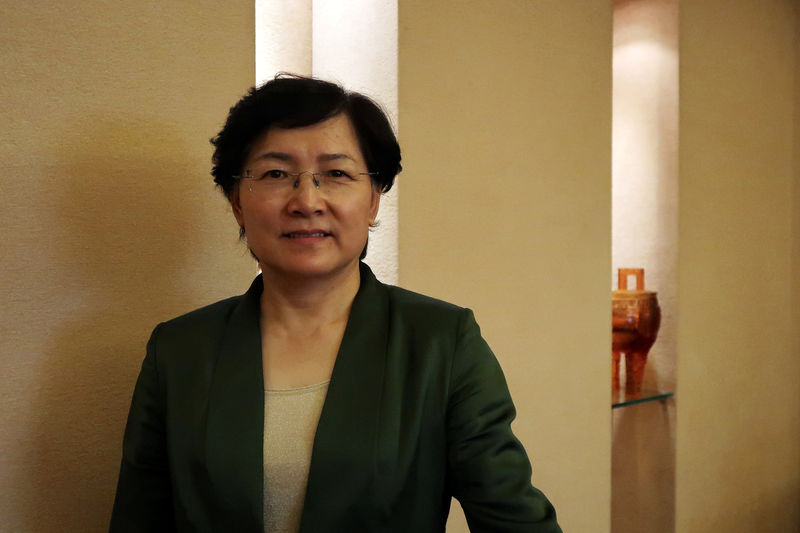By Chen Aizhu
SINGAPORE (Reuters) - China's surging natural gas demand in 2019 will require more efforts to better connect end-users to suppliers as government policies and a recent tax cut will continue to spur consumption of the clean-burning fuel, a senior industry executive said.
China's gas demand will expand by 30 billion to 40 billion cubic meters (bcm) this year, Li Yalan, Chairwoman of Beijing Gas Group, the main supplier to the Chinese capital, said in an interview on Friday.
That would be an increase of as much as 14 percent from the 280.3 bcm of gas China consumed in 2018, according to data from state economic planner the National Development and Reform Commission (NDRC). Gas consumption in 2018 was 18 percent higher than in 2017, the NDRC said.
The rising gas demand is a result of China's government continuing policies to switch to gas from coal for heating and industrial uses and as the industrial sector buys more gas following cuts in the value-added tax that went into effect on April 1, she said.
"The broad direction is not going to change, which is to restructure the energy mix by increasing the share of natural gas," Li told Reuters in a phone interview.
"What China needs to do is to connect the gas supplies with the demand nicely to ensure a smooth switch."
Better state planning to ensure grid connections and to encourage energy companies to boost imports in advance helped China's gas market, the world's third largest, to expand by a record 43 bcm last year, Li said.
The expansion occurred after a supply crunch in the winter of 2017/18 as suppliers struggled to meet the demand surge for gas as a result of the policy to move millions of households to gas from coal and a cold winter.
"This year we'll likely see the market growing between 30 and 40 bcm, which is a normal range," said Li.
With domestic gas production growth capped by high development costs and new piped gas from Russia's Siberian fields only due to start end of the year, China is expected to ramp up imports of liquefied natural gas (LNG), said Li.
China, the world's second-largest LNG buyer since 2017, boosted imports 41 percent in 2018 to 54 million tonnes.
Li said Beijing, one of the world's biggest gas consuming cities, consumed a record 18.5 bcm of gas last year, up 14 percent from 2017.

Gas use may also rise after the government's cut in the value-added tax for manufacturers, as local authorities prepare to execute reductions in the fuel prices for industrial and commercial users, said Li.